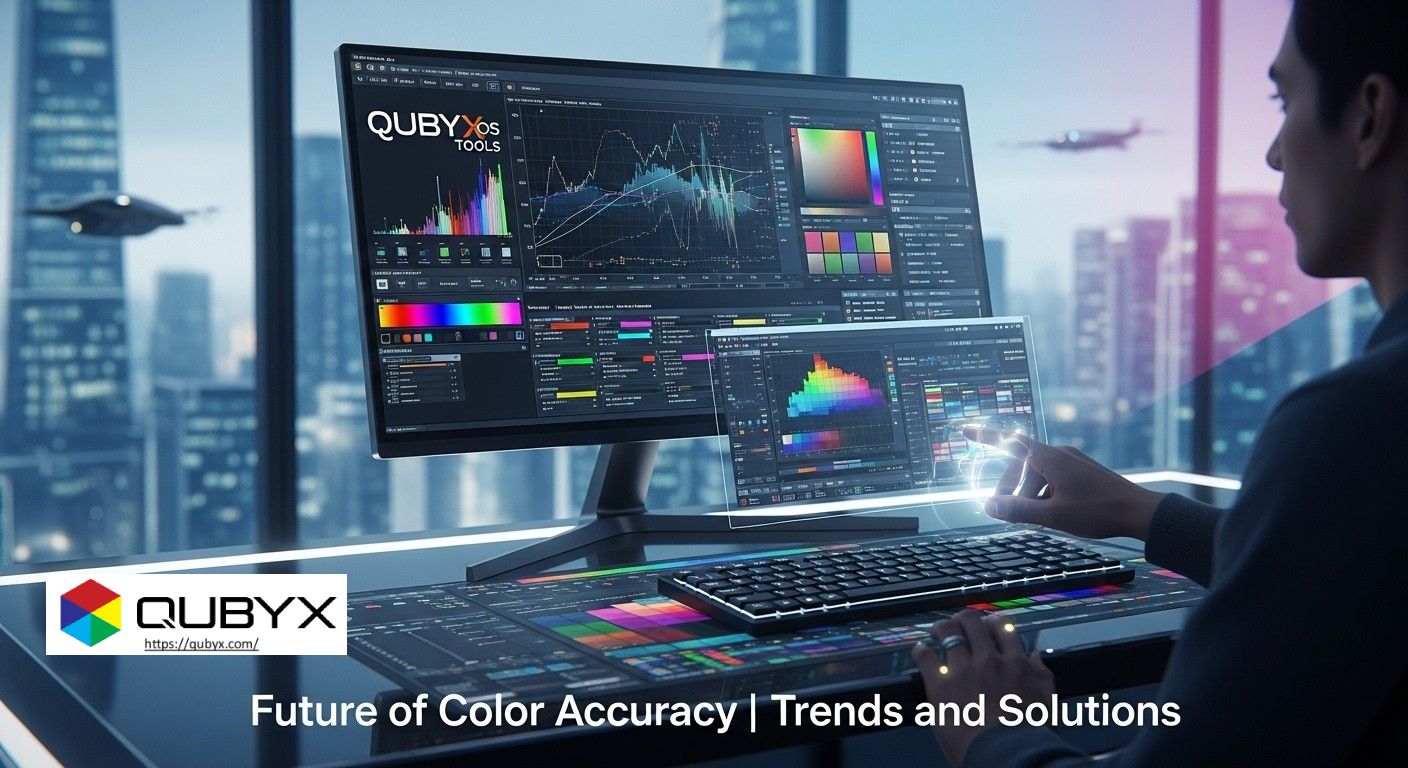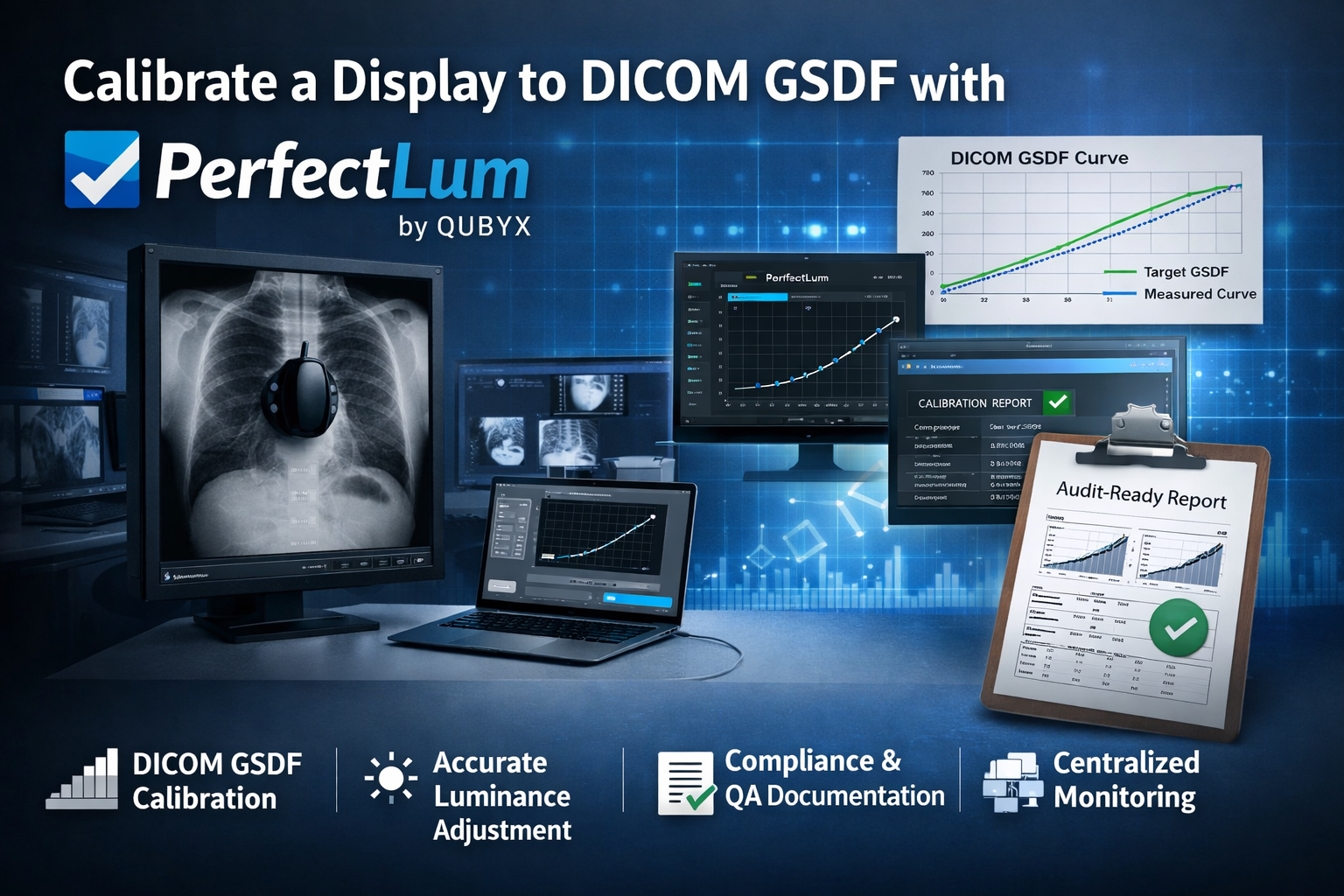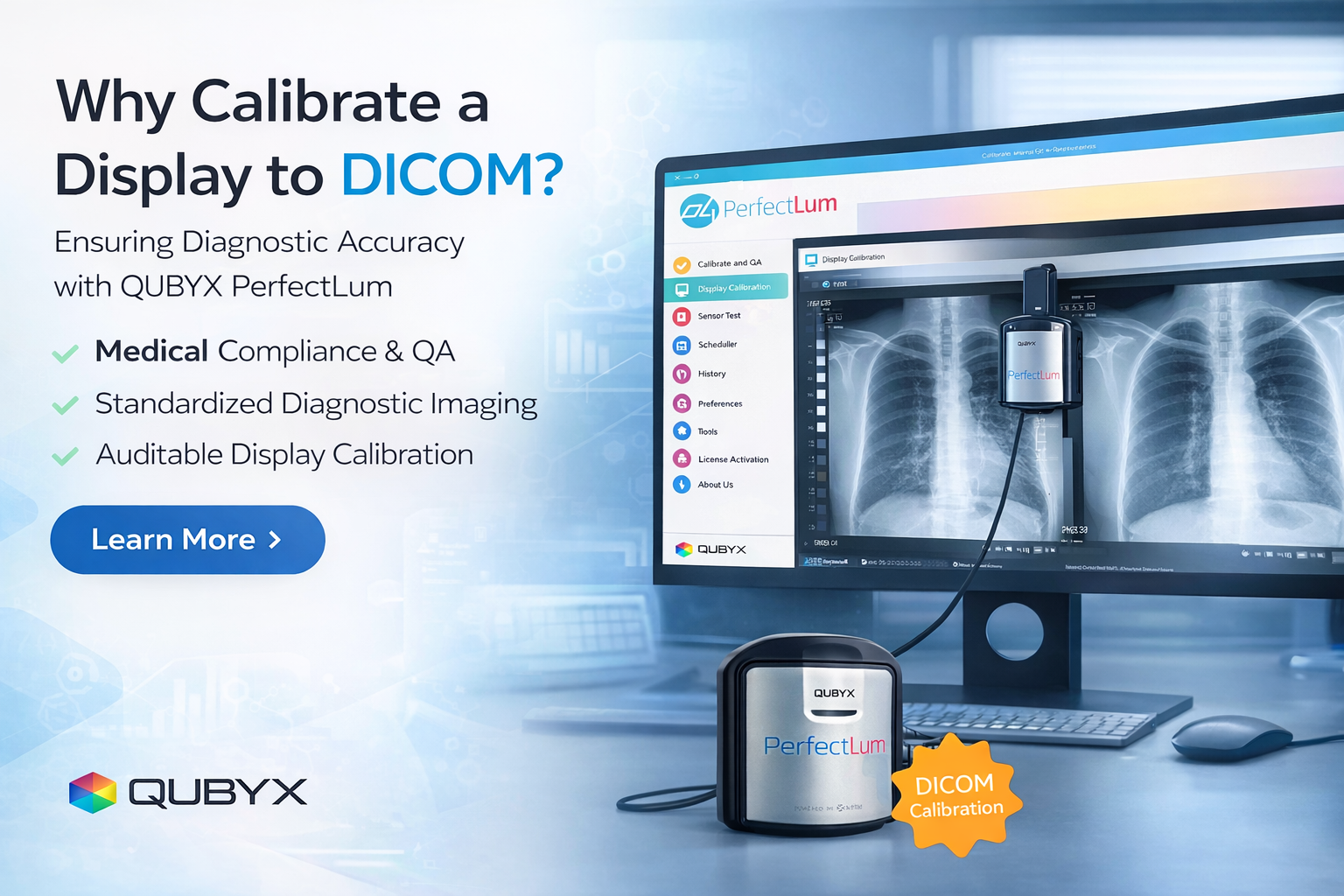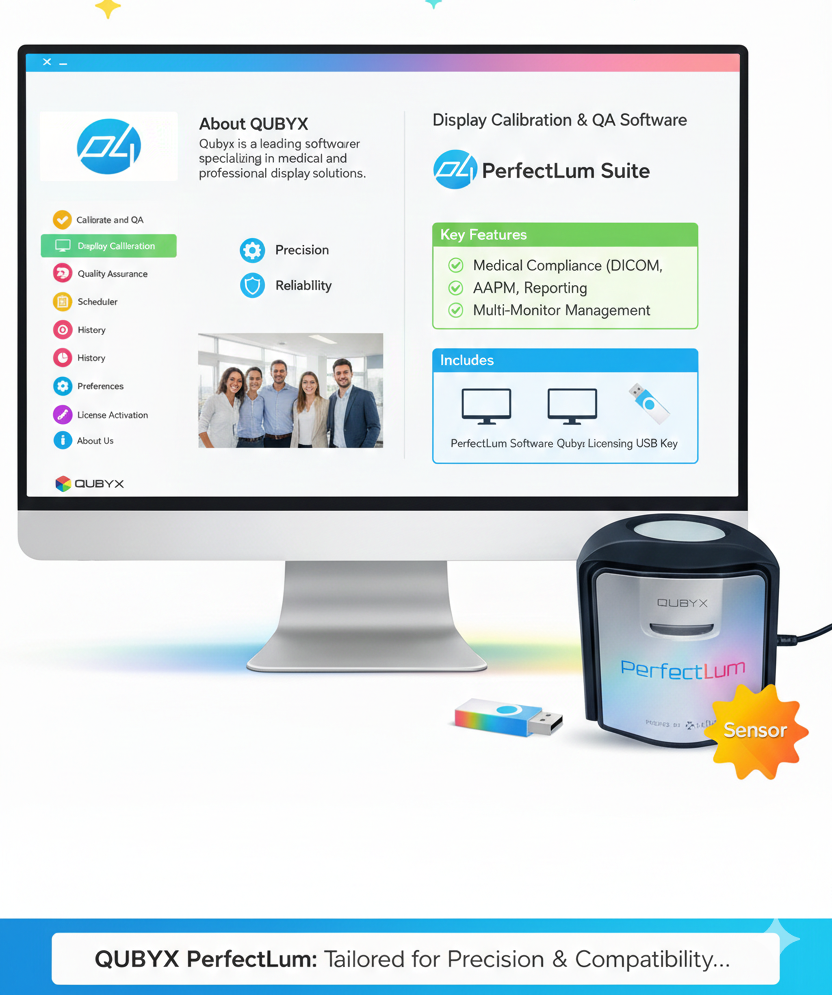News
- Home
- Qubyx OS Tools | Next-Gen Operating System Innovation

Qubyx OS Tools | Next-Gen Operating System Innovation
- October 4, 2025
- Sam Lee
Unlocking the Future of Operating Systems with Qubyx OS Tools – Transforming User Experience and System Efficiency
In today’s rapidly evolving digital landscape, operating systems must adapt to meet modern demands for speed, security, customization, and seamless integration. Enter qubyx-os-tools/—a pioneering suite of tools designed to elevate Qubyx OS from a basic platform to a sophisticated ecosystem tailored for diverse user needs. This comprehensive blog explores the depths of Qubyx OS and its innovative toolset, illustrating how these components work in harmony to redefine what an operating system can achieve.
Introduction to Qubyx OS and Its Tool Ecosystem
Overview of Qubyx OS – A Next-Generation Operating System
Qubyx OS emerges as a revolutionary operating system that prioritizes flexibility, security, and user-centered design. Built on cutting-edge technology, it aims to cater to both everyday users and tech enthusiasts, providing a platform that adapts to various workflows, devices, and preferences. Unlike traditional OS, Qubyx OS integrates a holistic ecosystem where tools are not just add-ons but foundational elements driving performance and user satisfaction.
The essence of qubyx-os-tools/ lies in their ability to streamline operations, reduce complexity, and enhance the overall digital experience. It’s designed not just to perform tasks but to anticipate user needs—making the user interface intuitive, the system secure, and the performance optimized. This next-generation OS seeks to balance innovation with reliability, setting new standards in the tech industry.
The Role of Tools in Qubyx OS – Improving Efficiency and Usability
Tools within Qubyx OS serve as critical enablers that expand core functionalities and provide customized solutions for users. These tools are meticulously developed to enhance efficiency—reducing time spent on routine tasks and simplifying complex processes—while boosting usability through intuitive interfaces and adaptive features.
Beyond mere utility, qubyx-os-tools/ foster a sense of ownership and personalization. They empower users to tailor the system to their specific workflows, preferences, and security requirements. By doing so, these tools not only improve productivity but also contribute to creating an engaging, user-friendly environment that encourages exploration and innovation.
Key Objectives Behind Developing Qubyx OS Tools
The development of qubyx-os-tools/ is guided by clear objectives focused on elevating the entire operating system experience. First, they aim to optimize system performance—ensuring stability, speed, and resource management—crucial for multitasking and heavy workloads.
Second, these tools emphasize security and privacy, which are increasingly vital in a connected world. They are designed to protect user data dynamically, prevent threats, and maintain data integrity. Lastly, extensibility and user empowerment stand at the core—facilitating customization and community-driven development to adapt continuously to technological advances and user feedback. These goals are the foundation upon which Qubyx OS and its tool ecosystem are built, paving the way for a more resilient and adaptable platform.
Core Qubyx OS Tools and Their Functionalities
File Management Tools – Streamlining Data Organization
Efficient file management is fundamental to a productive digital environment, and Qubyx OS excels with its innovative tools designed for data organization. These tools don’t just handle storage—they enhance accessibility and control, making data retrieval faster and more intuitive. By integrating intelligent indexing, tagging, and categorization features, users can locate files seamlessly, regardless of volume.
Furthermore, qubyx-os-tools/ offer advanced automation options for routine file operations, such as backups, synchronization, and cleanup. These features minimize manual effort, allowing users to focus on higher-value tasks. The result is a robust system where data flows smoothly, and digital chaos is transformed into a well-organized digital library.
Customization Tools – Personalizing the User Interface
Personalization is central to user satisfaction in modern operating systems. Qubyx OS’s customization tools provide extensive options to modify everything from themes and icons to layout and workflows. These tools are designed with an intuitive interface, enabling users to craft a digital environment that reflects their personality and functional needs.
The flexibility of qubyx-os-tools/ means users are not limited by rigid system defaults. Instead, they can create bespoke experiences—whether adjusting accessibility features for inclusivity or designing specific workspaces for different projects. This level of customization empowers users to make the OS truly their own, fostering a deeper connection and comfort with their digital ecosystem.
Security and Privacy Tools – Protecting User Data
In an interconnected world, safeguarding personal data is paramount. Qubyx OS integrates a comprehensive suite of security and privacy tools that proactively protect users. These include real-time threat detection, encrypted communications, and granular permission controls, all operating transparently behind the scenes.
qubyx-os-tools/ prioritize data integrity and user control, ensuring that users decide what to share and what to keep private. They also feature automatic updates for vulnerability patches and behavioral monitoring to identify suspicious activity—creating a resilient shield against cyber threats. These capabilities give users peace of mind, knowing their digital lives are secure.
Performance Optimization Tools – Ensuring Smooth Operation
Smooth performance underpins a positive user experience, and Qubyx OS’s performance tools are designed to deliver it. These tools analyze system resources in real-time, identify bottlenecks, and optimize CPU, memory, and disk usage dynamically. They facilitate efficient multitasking and system responsiveness, even under heavy workloads.
In addition, qubyx-os-tools/ include proactive maintenance features like cache clearing, memory management, and automatic error correction. This proactive approach prevents system degradation over time, maintaining peak performance and prolonging hardware lifespan. Ultimately, these tools ensure that the OS remains fast, reliable, and ready for any challenge.
Developer Tools – Facilitating App Creation and Integration
Qubyx OS recognizes the importance of an active developer community. Its suite of developer tools provides comprehensive APIs, SDKs, and debugging utilities for creating, testing, and deploying applications seamlessly. These tools ease integration efforts, fostering innovation within the ecosystem.
By supporting open standards and offering extensive documentation, qubyx-os-tools/ lower the barrier for developers to contribute. This openness accelerates application diversification and ensures compatibility across devices. As a result, users benefit from a richer, more versatile software environment tailored to evolving needs.
How Qubyx OS Tools Enhance User Experience
Intuitive Interface Design for Easy Navigation
Qubyx OS emphasizes user-centric design. Its tools collectively contribute to an interface that feels natural, engaging, and easy to navigate. Clear icons, contextual menus, and customizable dashboards minimize learning curves, making complex tasks achievable even for novices.
Beyond aesthetics, these features promote efficiency. Recognizing common user behaviors and streamlining workflows results in a smooth navigation experience. The integration of qubyx-os-tools/ ensures consistency across applications and system components, reducing confusion and fostering confidence.
Seamless Integration Between Tools and System Components
One of the standout features of Qubyx OS is the seamless interplay between its diverse tools. For example, security modules communicate effortlessly with file management systems to enforce encryption policies, while performance optimization tools adapt to user activity in real time.
This interconnectedness creates a cohesive digital environment. It allows workflows to be more efficient—less manual switching; more automation. By fostering tight integration, qubyx-os-tools/ eliminate fragmentation, giving users a unified and reliable system experience.
Adaptive Features for Different User Needs
Qubyx OS’s tools are designed with adaptability at their core. Whether users require accessibility options, developer modes, or energy-efficient settings, the system adjusts dynamically. This adaptability ensures a personalized experience that caters to diverse professions, preferences, and environments.
Such flexibility is essential in today’s multi-device, multitasking world. It confirms that the system can evolve with the user—supporting new workflows or hardware configurations as they emerge—highlighting qubyx-os-tools/‘s focus on future-proofing and inclusivity.
Accessibility and Inclusivity Features
Inclusivity is a cornerstone of Qubyx OS. Its tools incorporate features like voice commands, screen readers, magnification options, and custom input methods. These tools enable users with disabilities to access, navigate, and use the OS effortlessly.
More broadly, qubyx-os-tools/ champion diversity by ensuring that technology is usable by all. They foster an environment where everyone, regardless of ability, can leverage the full potential of the system. This commitment extends the OS’s reach and creates a more equitable digital space.
Technical Architecture and Development of Qubyx OS Tools
Underlying Technologies and Frameworks
The development backbone of qubyx-os-tools/ relies on modern, scalable technologies. These include cloud-based services, containerization, and microservices architectures, ensuring flexibility and robustness. Such frameworks facilitate rapid deployment, updates, and cross-platform compatibility, vital for a modern OS ecosystem.
The choice of open standards and APIs also plays a key role. They enable developers to build compatible extensions and integrations, encouraging community involvement. These technological foundations are crucial for creating a resilient, adaptable platform poised for continuous evolution.
Modular Design Approach for Scalability
A significant architectural feature of Qubyx OS tools is their modularity. Each tool functions as an independent component that can be updated, replaced, or added without disrupting the entire system. This approach simplifies maintenance and encourages rapid innovation.
Modularity also supports customization and tailored deployments. Users and enterprises can select only the tools they need, optimizing resource use. It’s a forward-thinking strategy that ensures scalability, flexibility, and longevity for the system.
Compatibility and Cross-Platform Support
Qubyx OS tools are engineered for diverse hardware and software environments. They support a wide range of devices, from desktops and laptops to IoT and mobile platforms. Cross-platform support enhances usability and ensures consistency regardless of device or operating environment.
Compatibility considerations are embedded at every development stage. By leveraging standardized protocols and interfaces, qubyx-os-tools/ guarantee seamless operation across different ecosystems, making migration and integration straightforward for users and developers alike.
Security Protocols and Data Integrity Measures
Security is integral to the architecture of Qubyx OS tools. They incorporate encryption, multi-factor authentication, and continuous vulnerability assessments. These protocols safeguard user data and system health against evolving threats.
Data integrity measures include checksum validation, version control, and rollback capabilities. These ensure that data remains accurate and uncorrupted, fostering trust in the system’s reliability. Through rigorous security design, qubyx-os-tools/ build a trustworthy foundation for users’ digital lives.
Customization and Extensibility of Qubyx OS Tools
User-Driven Configuration Options
Qubyx OS empowers users through extensive configuration options. Whether adjusting system behaviors, interface elements, or security settings, users have granular control over their systems. This empowers a personalized experience aligned with individual workflows.
This flexibility also supports organizations with specific compliance or operational requirements. The ability to tailor the OS environment enhances efficiency, security, and satisfaction, demonstrating a user-first philosophy embedded in qubyx-os-tools/.
Plugin and Extension Support
The ecosystem of Qubyx OS is enriched by its support for plugins and extensions. Developers can create add-ons that introduce new features, integrate third-party services, or enhance existing functionality. This extensibility ensures the OS evolves in tandem with technological advances.
Open plugin architectures encourage a vibrant community of contributors. Users benefit from a continually growing toolkit, fostering innovation and accommodating specialized use cases—making the operating system a living, breathing platform for future growth.
Open API and Developer Resources
Accessibility for developers is a core principle. Qubyx OS provides comprehensive APIs, documentation, and SDKs that enable third-party app creation and system customization. These resources lower barriers and spur innovation within the ecosystem.
Community engagement is vital. By facilitating feedback, bug reporting, and collaborative development, qubyx-os-tools/ create a dynamic environment where user and developer voices influence future updates. This openness drives continuous improvement and diversification of the toolset.
Community Contributions and Feedback
The success of qubyx-os-tools/ hinges on active community participation. Users and developers can share custom extensions, report issues, and propose new features, fostering a collaborative development process. This openness accelerates innovation and ensures the OS remains relevant.
Feedback loops enable quick adaptation to emerging needs. As user demands grow and technology evolves, community inputs guide enhancements, ensuring Qubyx OS and its tools stay at the forefront of functionality and security.
Challenges and Future Directions for Qubyx OS Tools
Addressing Compatibility and Fragmentation Issues
As the ecosystem expands, ensuring compatibility across diverse devices and software environments remains a challenge. Fragmentation can hinder seamless user experiences and complicate maintenance. Continuous efforts in standardization and rigorous testing are necessary.
Future developments should focus on creating unified frameworks and adaptive compatibility layers. Collaborating with hardware manufacturers and software vendors will be key to minimizing inconsistencies, fostering a cohesive ecosystem.
Enhancing Security and Privacy Measures
Cyber threats evolve rapidly, demanding proactive, multi-layered security strategies. The future of qubyx-os-tools/ involves integrating AI-driven threat detection and adaptive privacy controls that respond dynamically to new vulnerabilities and user concerns.
Prioritizing transparency, user consent, and data encryption will be essential to maintaining trust. Continued investment in security research and community collaboration will help keep the platform resilient against emerging threats.
Incorporating User Feedback for Continuous Improvement
Dynamic feedback mechanisms are essential for tailoring qubyx-os-tools/ to real-world needs. Future iterations should emphasize user surveys, analytics, and beta programs to gather insights and validate improvements before release.
This iterative development cycle ensures that enhancements address actual pain points and preferences, fostering user loyalty and system relevance amid changing technological landscapes.
Expanding Toolset for Emerging Technologies
Emerging tech like AI, blockchain, and IoT present exciting opportunities for Qubyx OS. Future tools could leverage these innovations to offer smarter automation, decentralized security, and better device interoperability.
Strategic investments in research and development will enable qubyx-os-tools/ to stay ahead of trends, expanding the ecosystem and future-proofing the operating system against technological shifts.
Conclusion
qubyx-os-tools/ are transforming the landscape of operating systems by combining cutting-edge technologies with user-centric design principles. They significantly enhance system performance, security, and personalization—creating a dynamic, adaptable, and robust environment. As development continues, these tools will shape a more efficient and inclusive digital future, unlocking new potential for users and developers alike.
“3D linked ICC profiles are a game changer,” says Marc Leppla, CTO of QUBYX. “They deliver superior color reproduction—even on cost-effective hardware—and make the so-called hardware calibration largely obsolete.”
From medical imaging and PACS systems to broadcast, aerospace, and photography, QUBYX OS Tools breaks vendor lock-in and makes professional calibration accessible, future-proof, and cost-effective.
Explore full documentation and tutorials at
https://qubyx.com/qubyx-os-tools/ and access the source code at https://github.com/QUBYX-LLC/Qubyx3DLUTGenerator.
Tags:
Qubyx OS Tools, Qubyx OS, next-generation operating system, open-source OS tools, system optimization, OS customization, performance enhancement, security and privacy, developer tools, AI-driven OS, future of operating systems, user experience, OS efficiency, Qubyx technology, digital ecosystem, software innovation
Related Posts
- February 24, 2026
- News
What is AAPM TG270? A Practical Guide to AAPM TG-270
- February 24, 2026
- News
How to Calibrate a Display to DICOM GSDF with PerfectLum
- February 23, 2026
- News
Why Calibrate a Display to DICOM? And the Role




